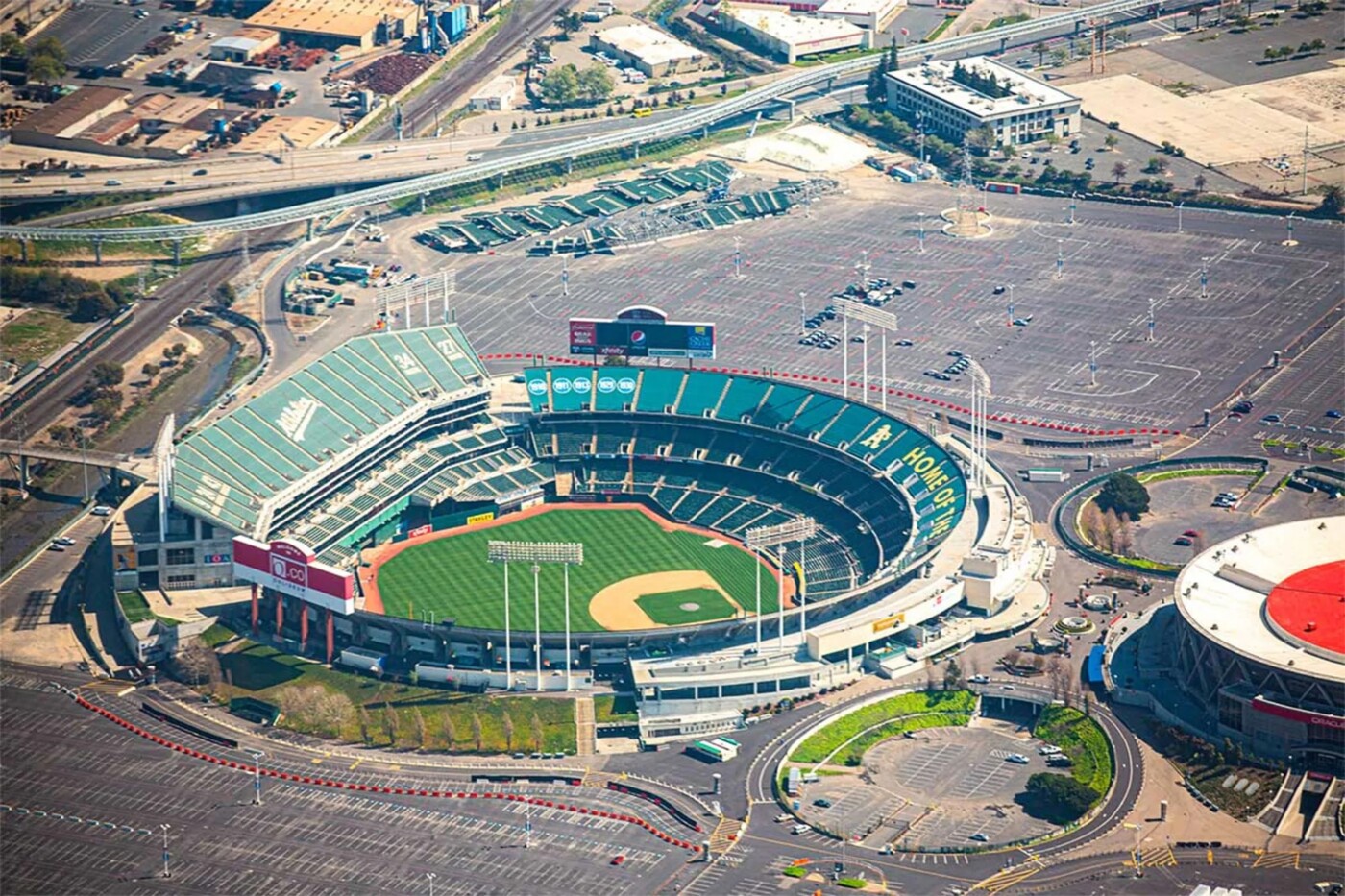The Oakland A’s will sell its half of the Oakland Coliseum to the investment company African American Sports and Entertainment Group for $125 million, the baseball team announced Monday.
The sale comes after AASEG, which plans to turn the stadium site into multi-use development, signed a deal with Oakland last week to buy the city’s half of the Coliseum for $105 million. The A’s said Monday’s agreement with the development company is pending approval from the Alameda County Board of Supervisors, as the county is still listed on the title of the Coliseum.
“As Oakland natives who grew up merely blocks away from the Coliseum, and as longtime Oakland business owners, we are filled with gratitude for this opportunity to assume stewardship of the Coliseum site,” said Ray Bobbitt, the founder of AASEG.
Should the sale be greenlighted by the Board of Supervisors, it would end a more than three-year saga in which AASEG negotiated to acquire the Coliseum. Bobbitt said the negotiations were fast-tracked over the last few months, as Oakland passed a budget that relied on funds from the sale to close fiscal gaps. He also said that the imminent departure of the A’s, who are set to leave Oakland next year for Sacramento, made negotiations easier for their share of the stadium.
Both Bobbitt and Oakland Mayor Sheng Thao have touted the development firm’s plan for a “multi-billion dollar” investment to build housing on the Coliseum site. When the Oakland City Council advanced the sale in June, it approved up to 4,000 units, with 25% of them affordable.
Was the price right?
When the A’s announced that they had tentatively sold their half of the stadium for $125 million, Oakland leaders encountered some backlash for selling the city’s half for $105 million last week.
“We are concerned that Oakland will be facing financial ruin,” said Sgt. Tim Dolan, vice president of Oakland Police Officers Association, noting the $20 million difference in sale price.
Oakland needed cash from the sale after passing a budget in June, which would have necessitated more than $60 million in cuts to municipal services if a sale agreement hadn’t been signed by September.
Some of Thao’s critics, like Dolan, have derided this budget strategy for relying on one-time funds from the sale. But Thao and City Councilmember Rebecca Kaplan, who worked to negotiate the sale, insist that residents must look beyond the sticker price to appreciate the full impact of the sale.
Both Thao and Kaplan said the city was in position to collect benefits from the stadium site once it was redeveloped by the new owners.
Future property taxes expected from this investment, Kaplan said, enabled the city to sell their half of the 155-acre site for less than the A’s. Kaplan added that the city also will collect a real estate transfer tax from the sale, making up some of the difference.
“This development will help uplift the surrounding area in East Oakland and beyond and provide tax revenue to fund essential services for years to come,” Kaplan said.
“The best way to solve Oakland’s financial challenge is through economic development and that’s what this deal represents.”
Mayor Sheng Thao
When those future benefits will arrive is undetermined. Leigh Hanson, Thao’s chief of staff, said that AASEG isn’t likely to secure the multi-billion financing until its construction plans are drafted and approved a few years down the line. And at an event last week, Bobbitt could not yet commit to a timeline for the process.
‘Another incredibly exciting day’
“The best way to solve Oakland’s financial challenge is through economic development and that’s what this deal represents,” Thao said.
She also added that the A’s needed to sell their share for more money to recoup fees and $5 million annual operating costs the team incurred after purchasing half of the stadium from Alameda County in 2019.
Thao commended the A’s Monday for striking a deal with AASEG, saying that it brought the development project closer to fruition.
“This is another incredibly exciting day,” Thao said. “When we agreed on our terms with AASEG for the City’s half of the Coliseum site, we knew this was right around the corner.”
The post Development group reaches deal with A’s to acquire remaining half of Oakland Coliseum appeared first on Local News Matters.
